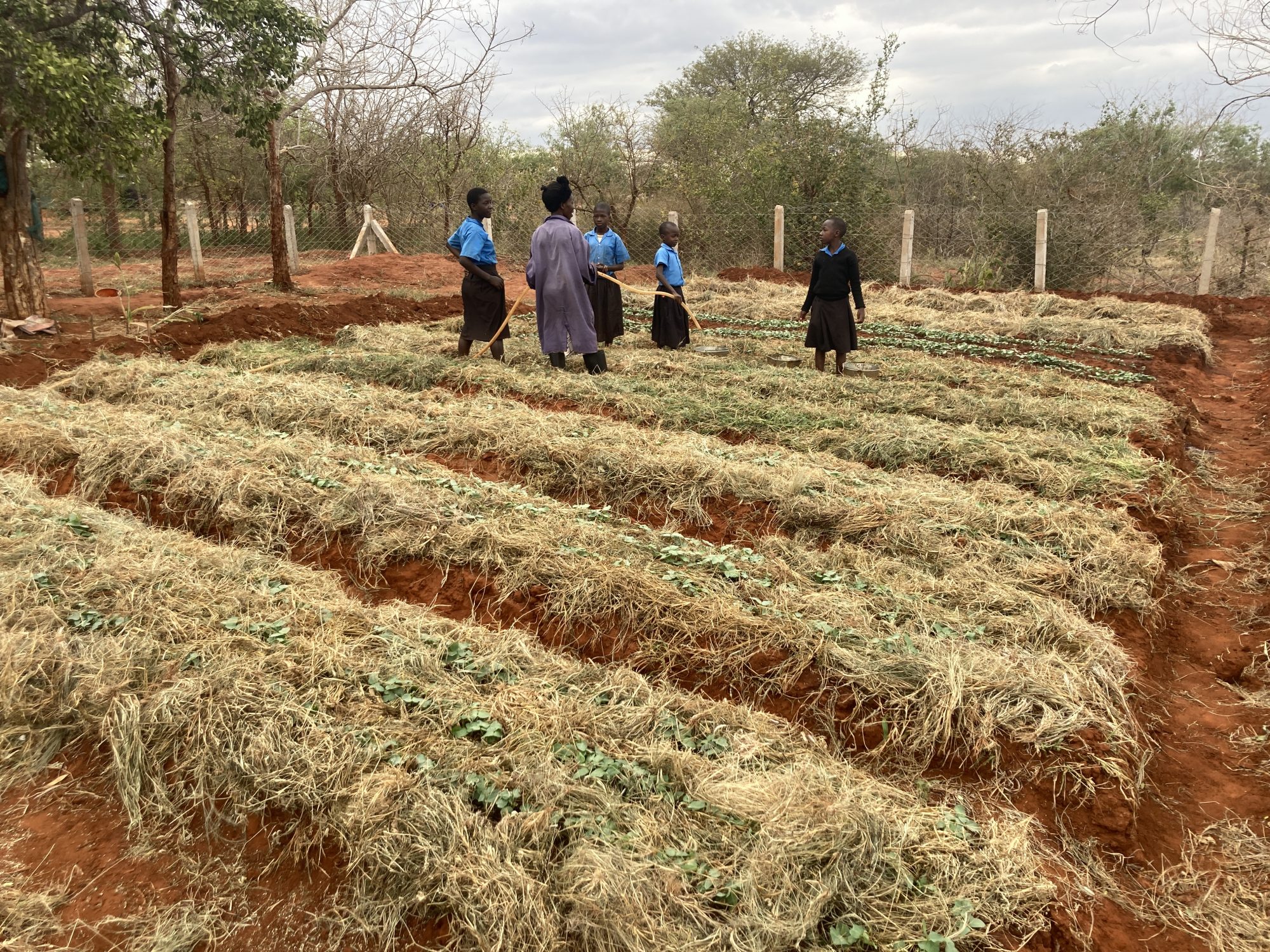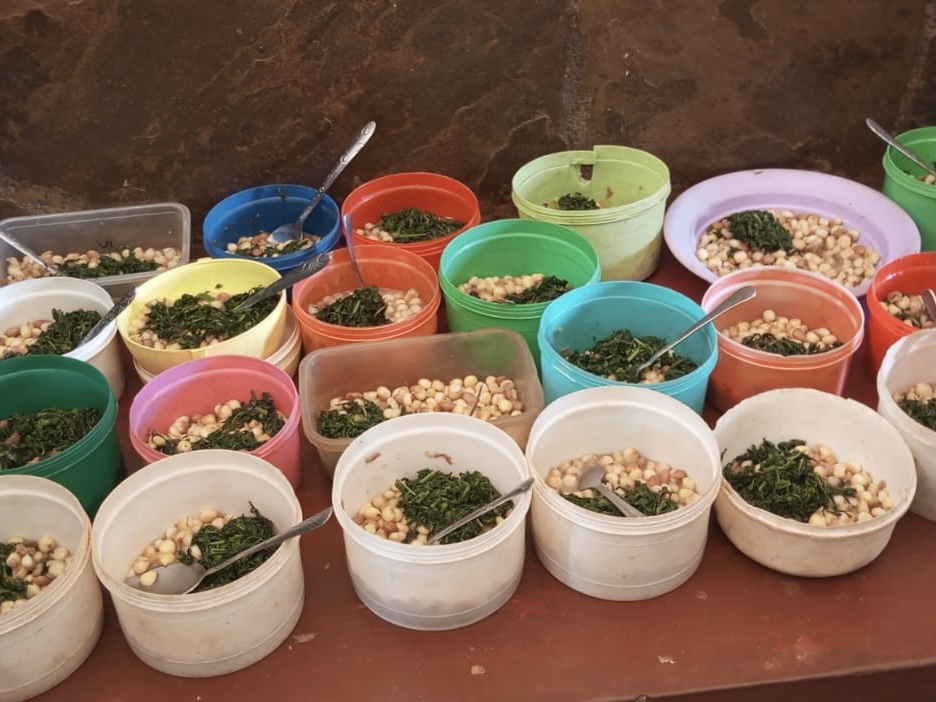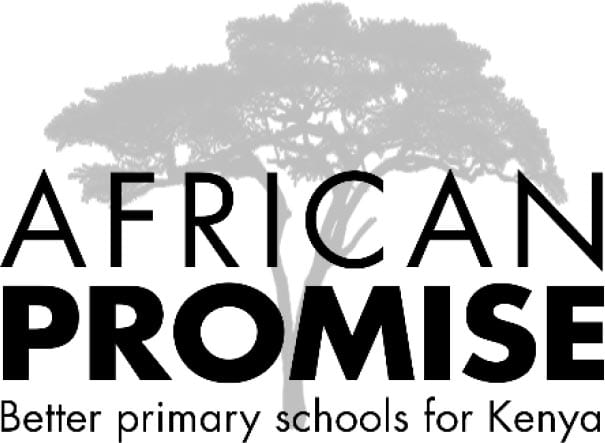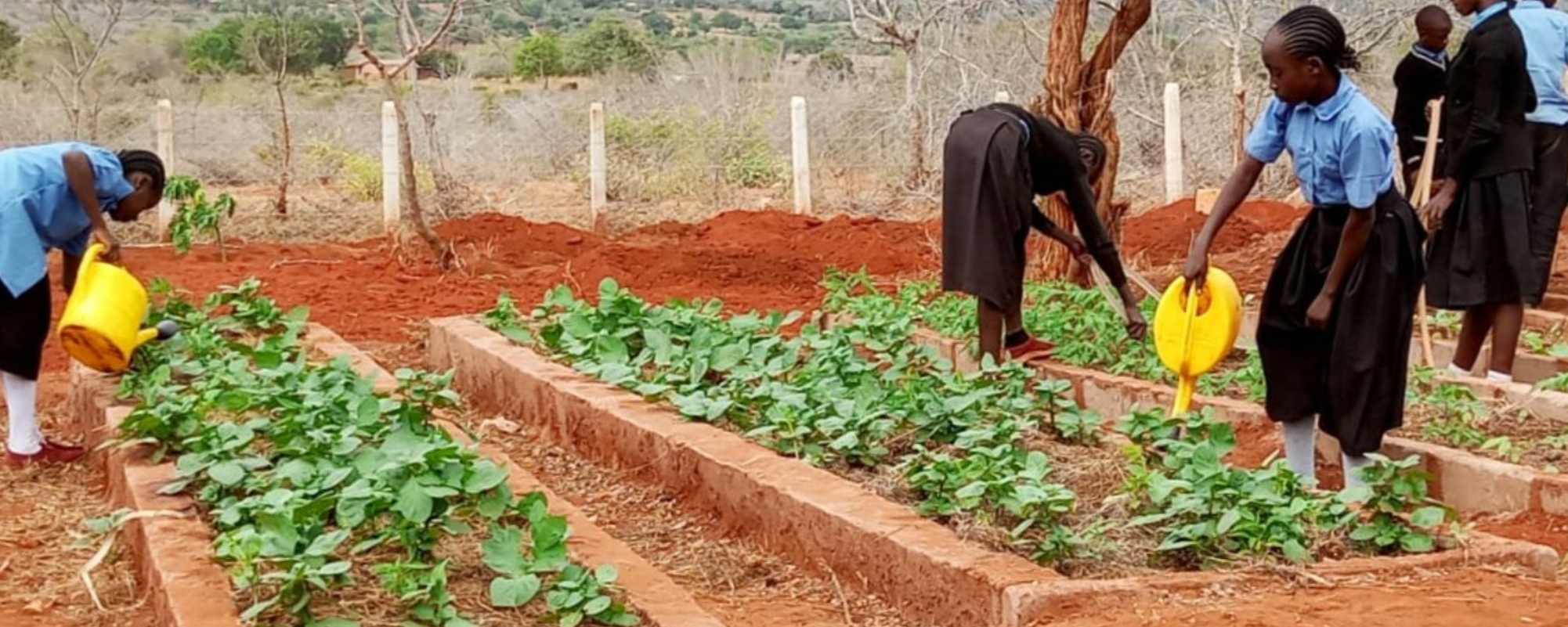Over the last few months we have been supporting the establishment of a kitchen garden at our smallest partner school, Ngambenyi Primary; the first of our eight partner schools where we have supported such a project.
Although this space is very much in its infancy, fresh produce including edible leaves from legumes is already being harvested to supplement the basic dried ingredients that we supply for school lunches, delivering much-needed additional nutrition to children.
Our support of this project began last year with the donation of materials and funds to fence off a 400 square metre portion of the school and has continued more recently with the provision of funds for materials for creating raised beds and vertical planters, for essential tools and equipment, and for an initial batch of seeds/seedlings.
The kitchen garden now consists of rows of beds growing pulses, legumes and vegetables, including tomatoes, cowpeas and black nightshade; water-saving vertical planting structures which will be planted with leafy greens such as kale and spinach; and an area where fruit trees will eventually establish and mature. Everything is being grown using organic farming practices and using water-saving measures and techniques.
The development of this space will continue to be an evolution rather than an overnight transformation and future additions could include a drip irrigation system, greenhouse, and, possibly, a poultry and rabbit rearing section.
In the meantime, in partnership with Oundle School and a group of sixth form pupils who will be visiting Kenya in October, a similar kitchen garden space is being created at another of our partner schools, Kiteghe Primary.
There are many obstacles to making these projects a long-term success – not least the challenge of irrigation in a semi-arid and water scarce region – but we are excited by what is already being achieved at Ngambenyi and eager to see how these spaces evolve over the months and years to come, how they benefit the schools, their pupils and possibly even AP, and whether they can become a model for other larger schools in our network and beyond.
*****


*****
Why do these areas need to be fenced?
Most of our partner schools, including Ngambenyi and Kiteghe, do not have perimeter fencing to prevent the movement of (and destruction caused by!) free-roaming livestock and wildlife.
How will the produce grown in the kitchen gardens be used?
The primary purpose of these spaces is to generate produce (such as vegetables, fruits and greens) to supplement the core lunch ingredients we already provide.
However they could also generate an income for the schools if excess produce (or produce that cannot be used to feed the children) can be sold within or outside the community, with income then used to make the kitchen gardens self-sustainable and towards other school running costs – potentially including purchasing foodstuffs (such as maize and rice) that cannot be grown – thereby decreasing reliance on AP and other partners.
How much have these spaces cost?
We have initially donated around £1,500 for each of these kitchen gardens and intend to donate further funds in the future to support their on-going establishment and development. If you would like to support us to do this you can make a donation here.


